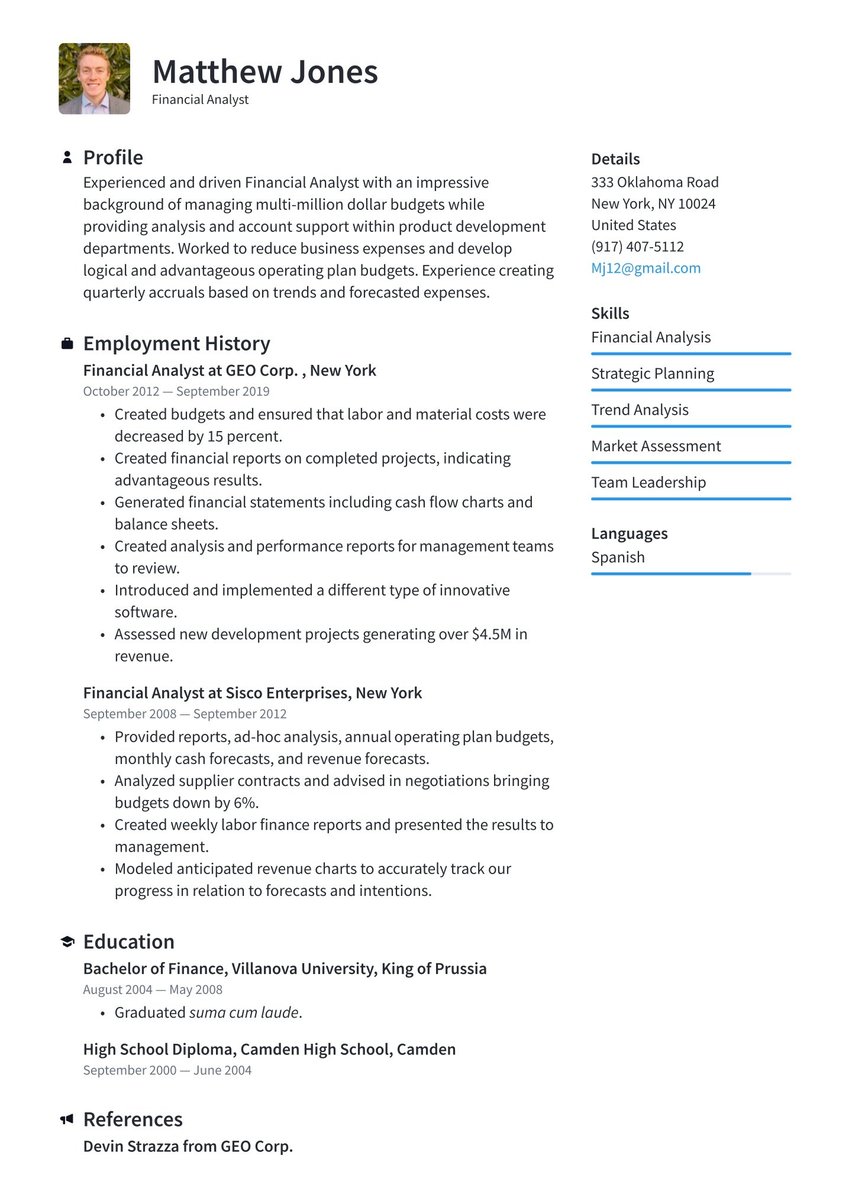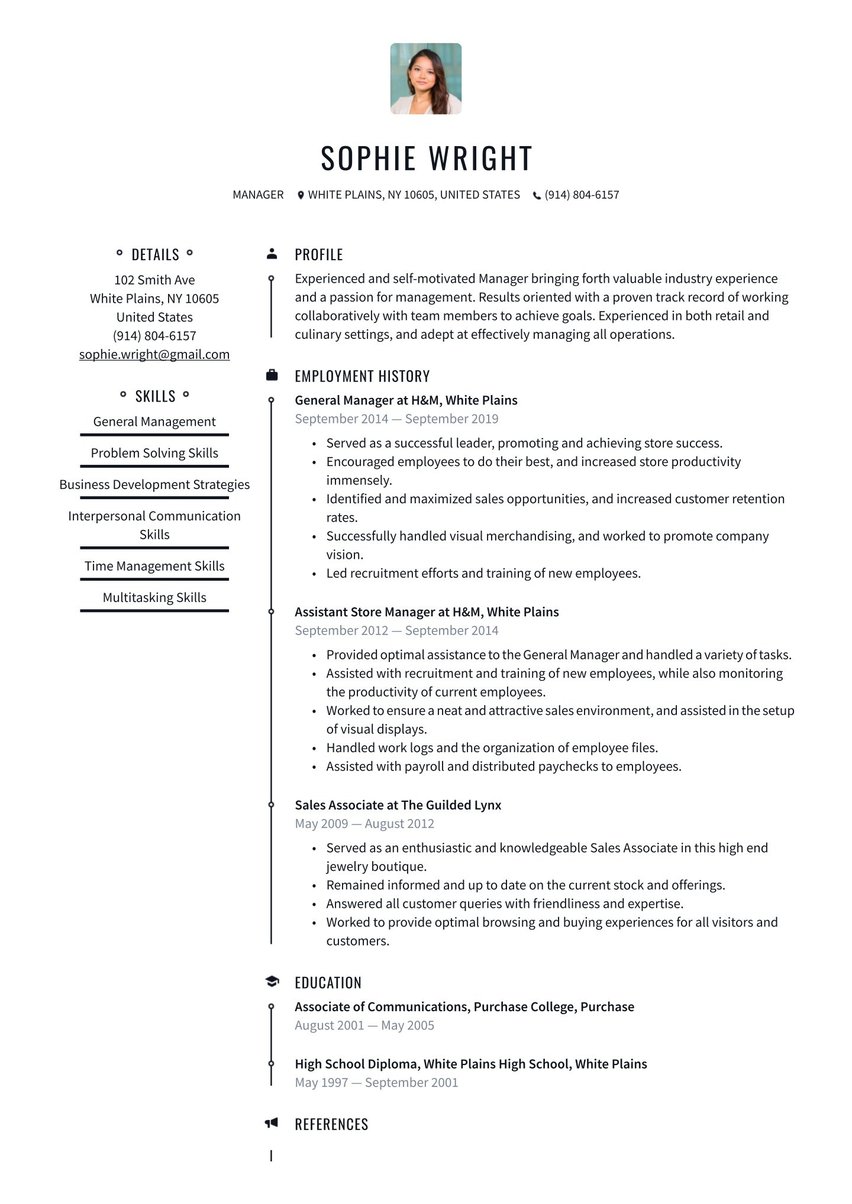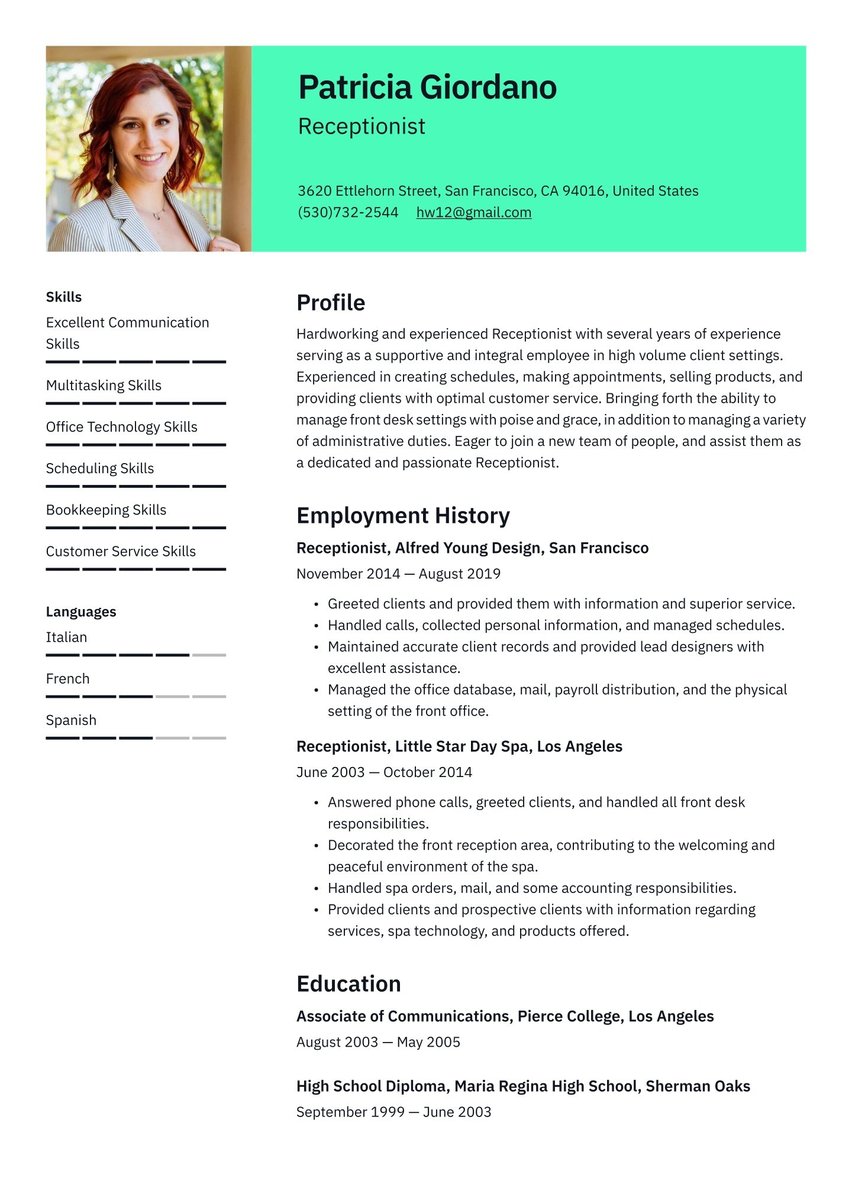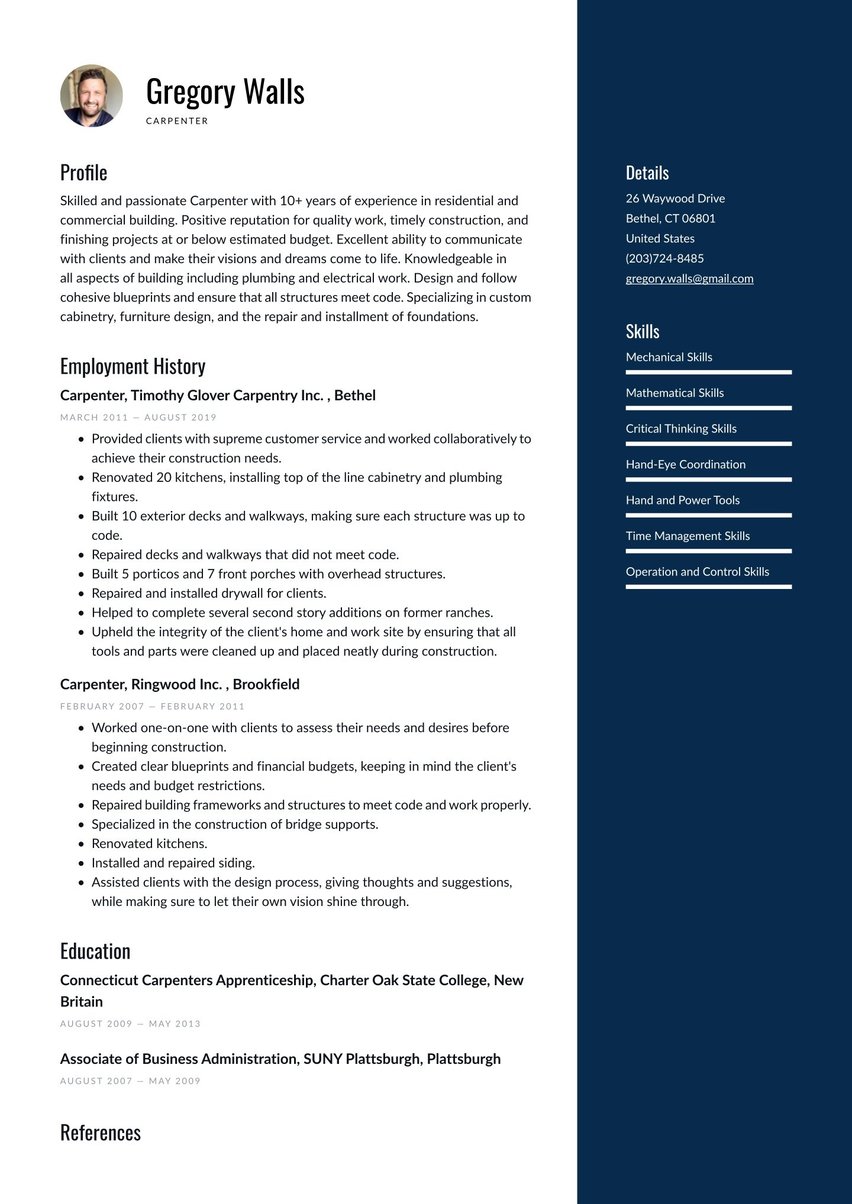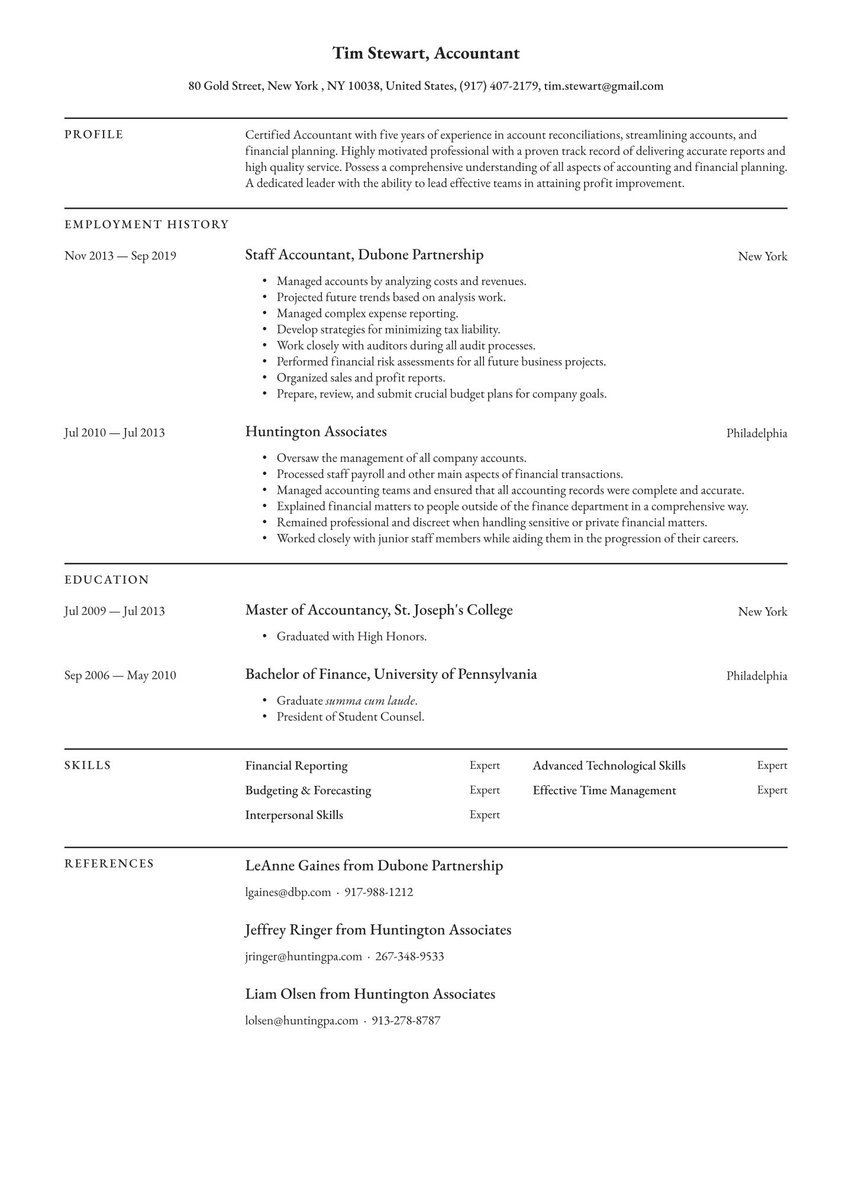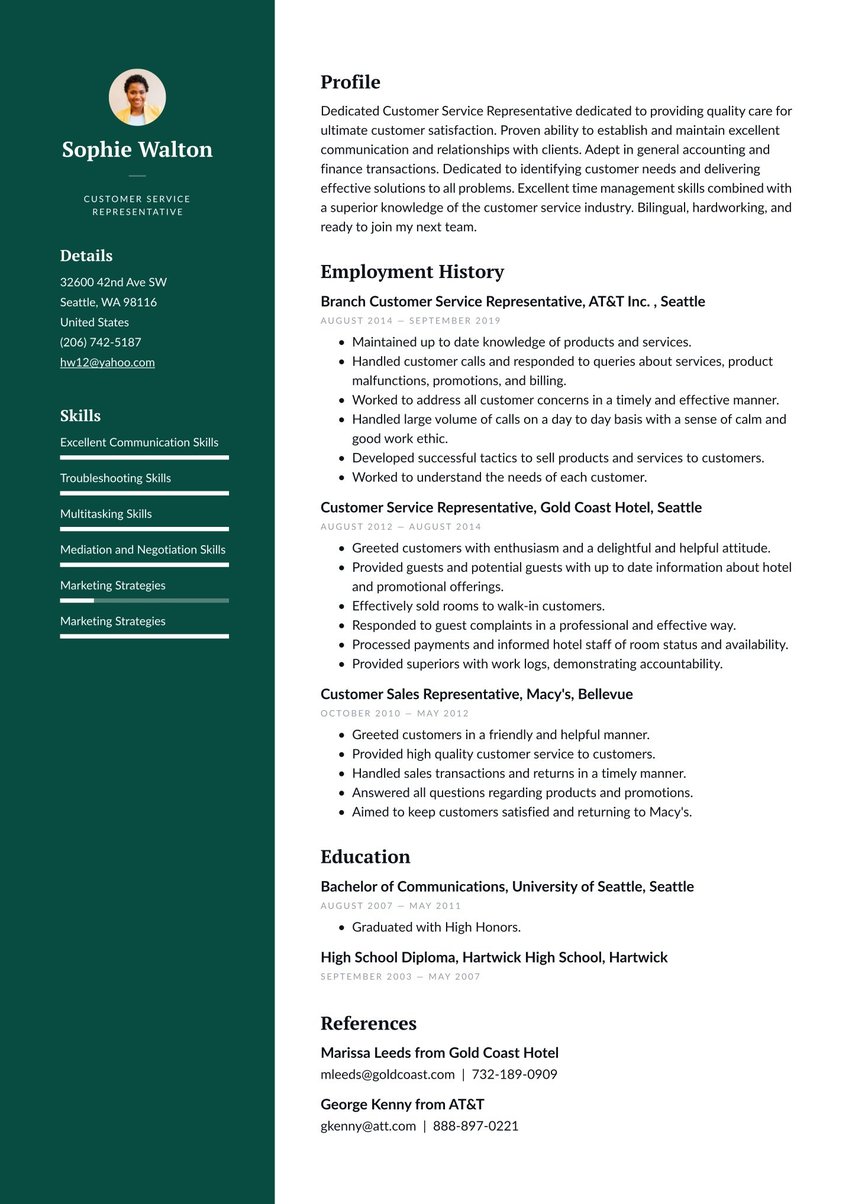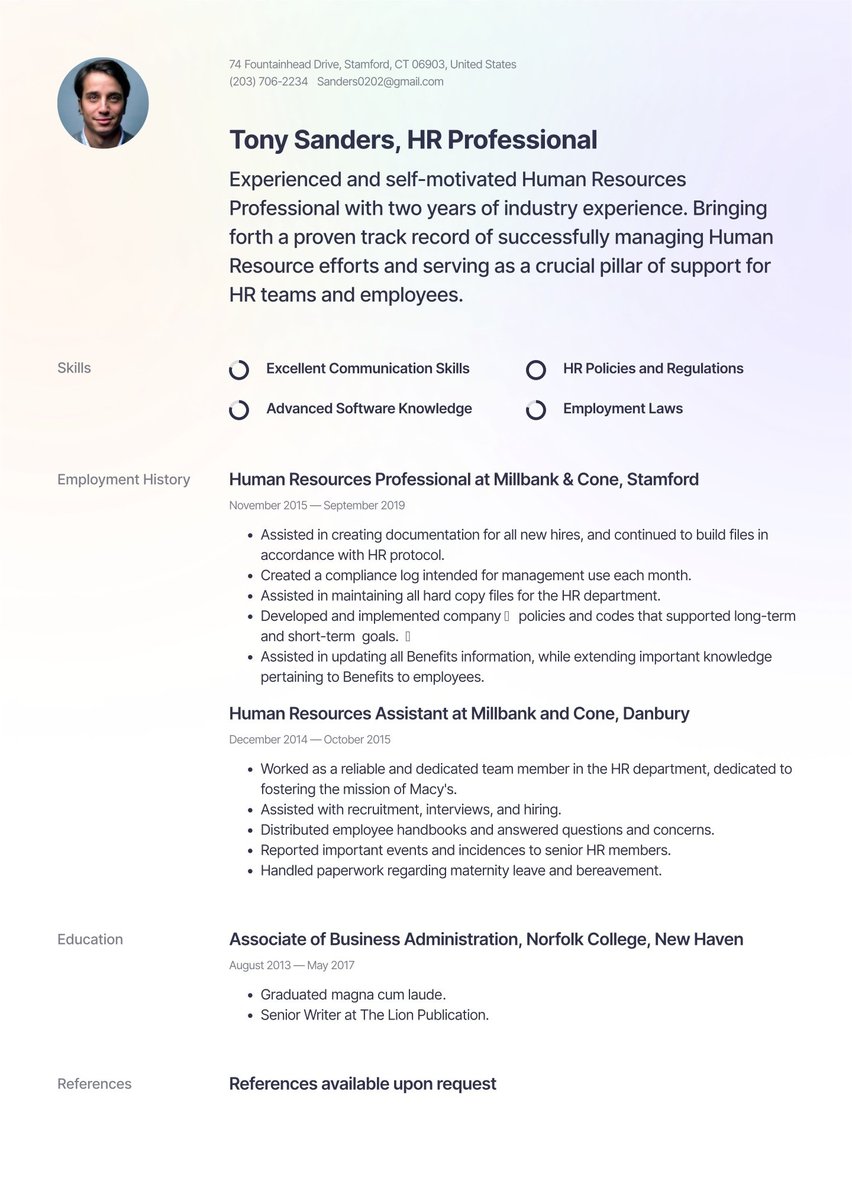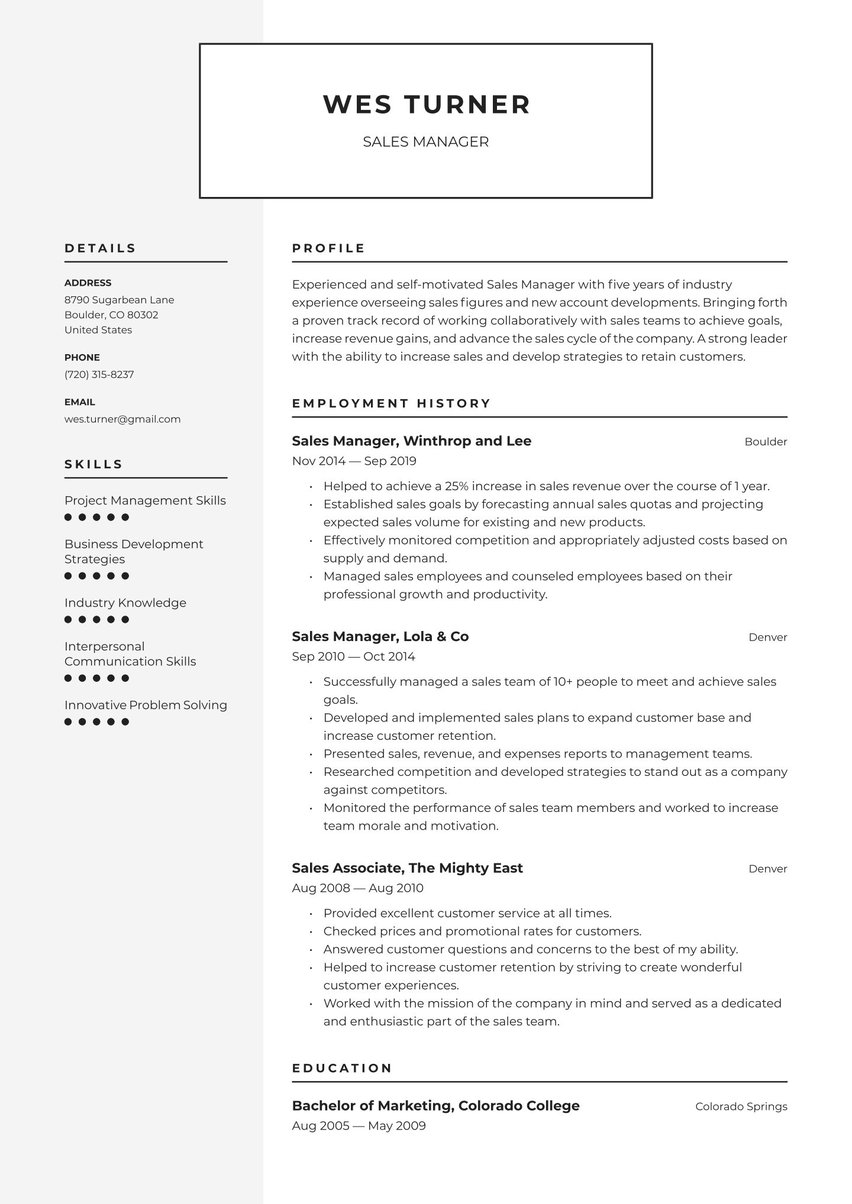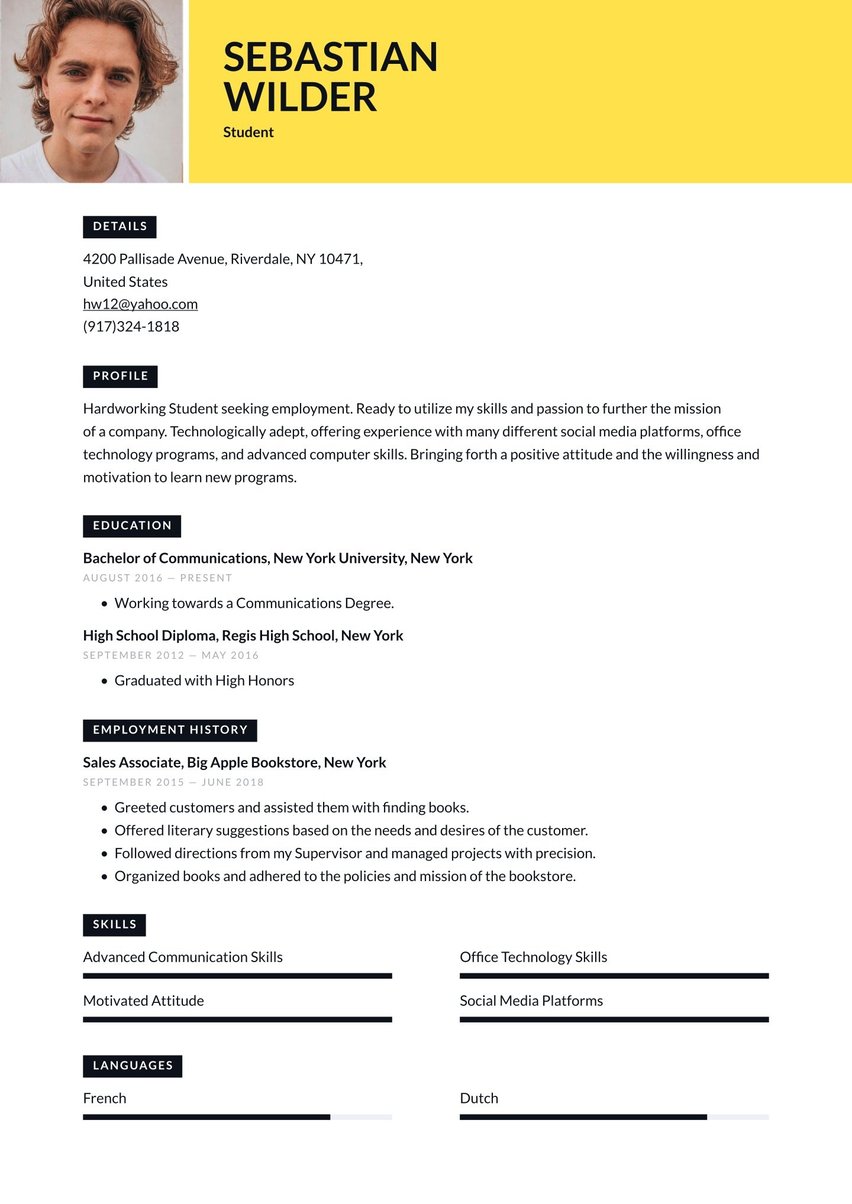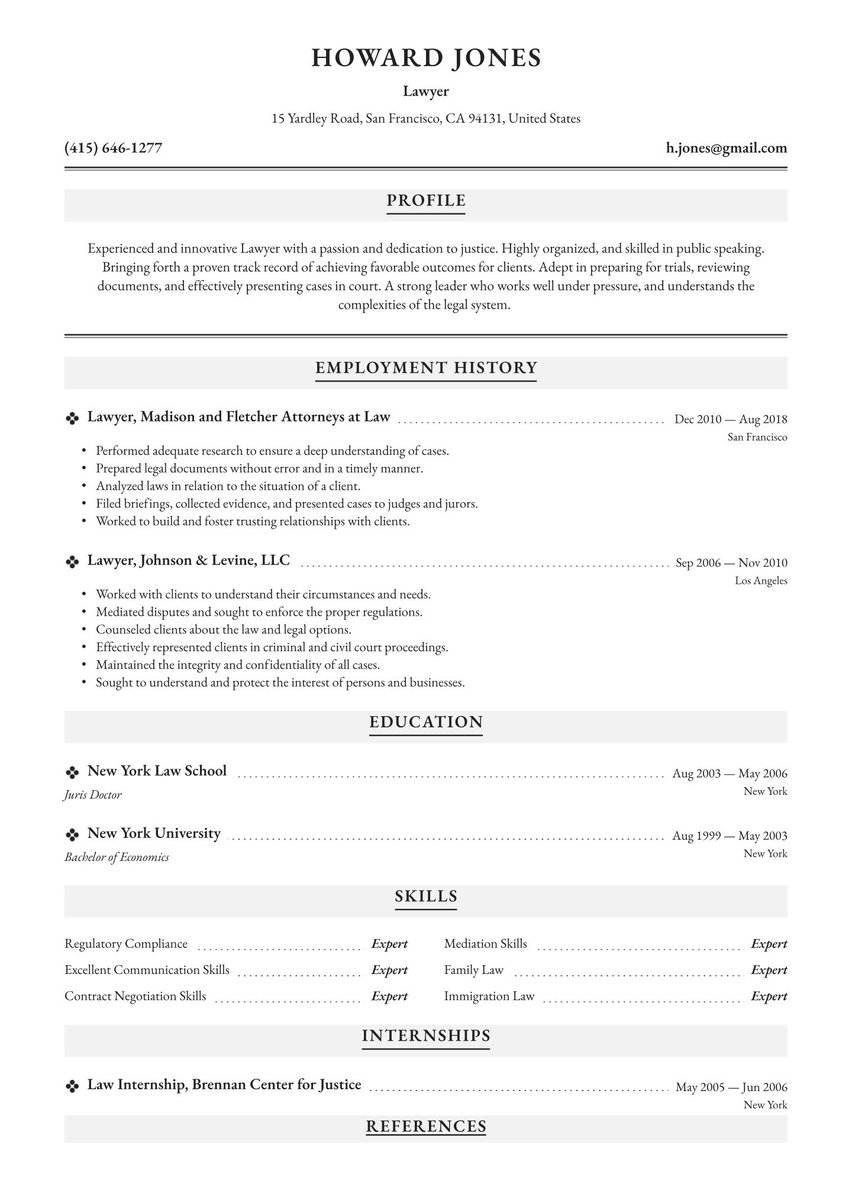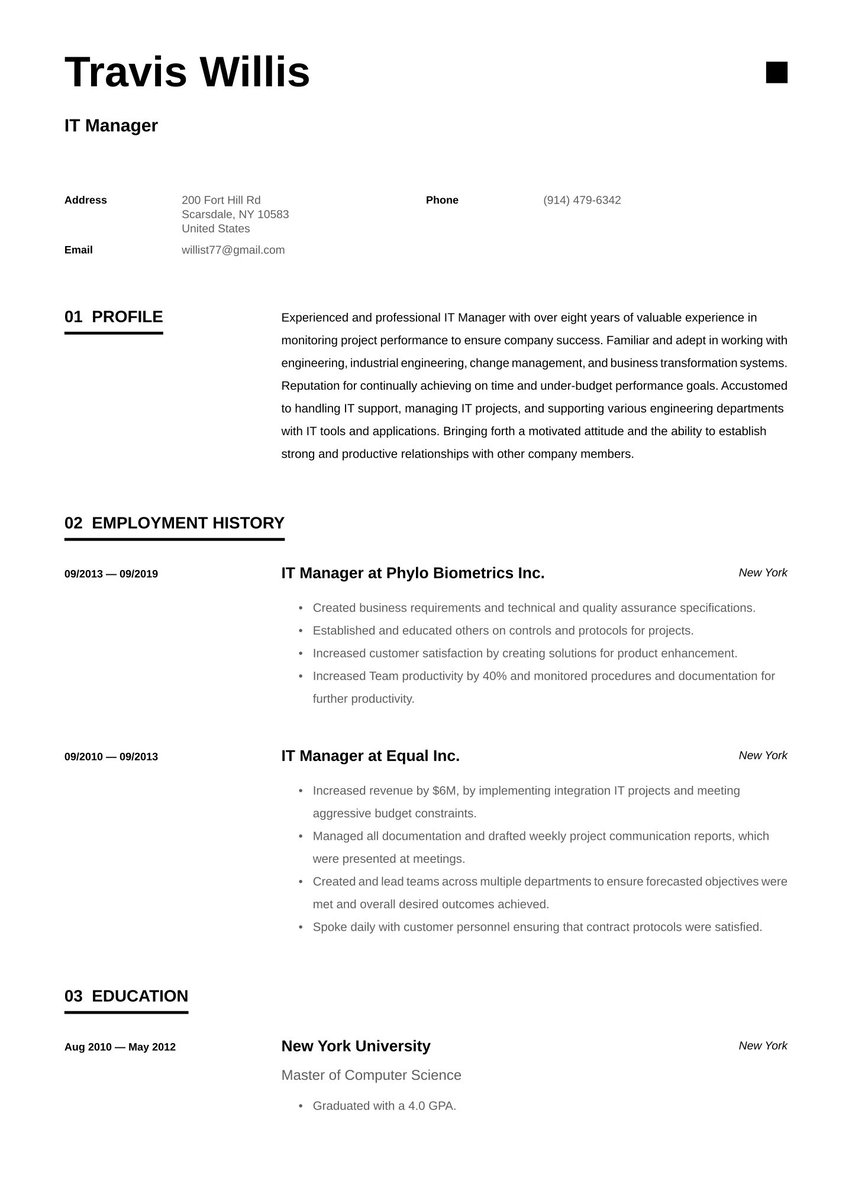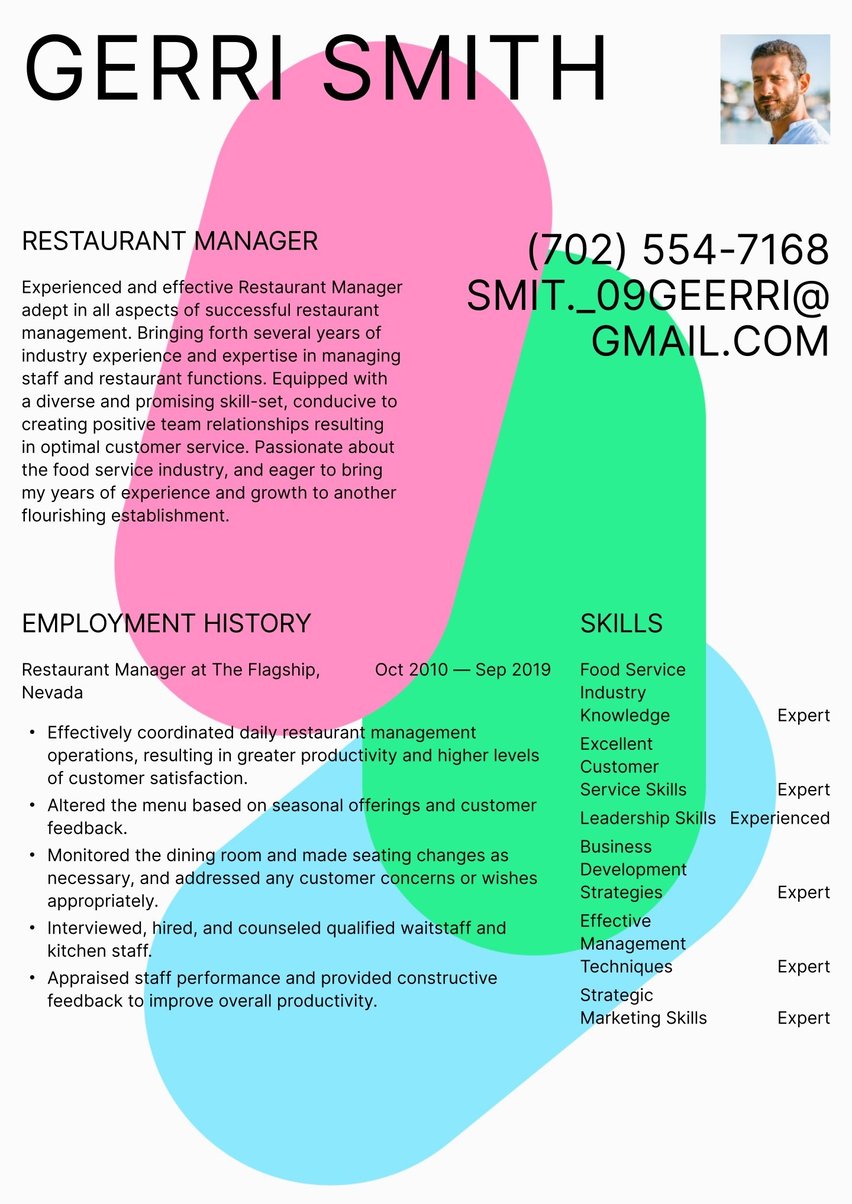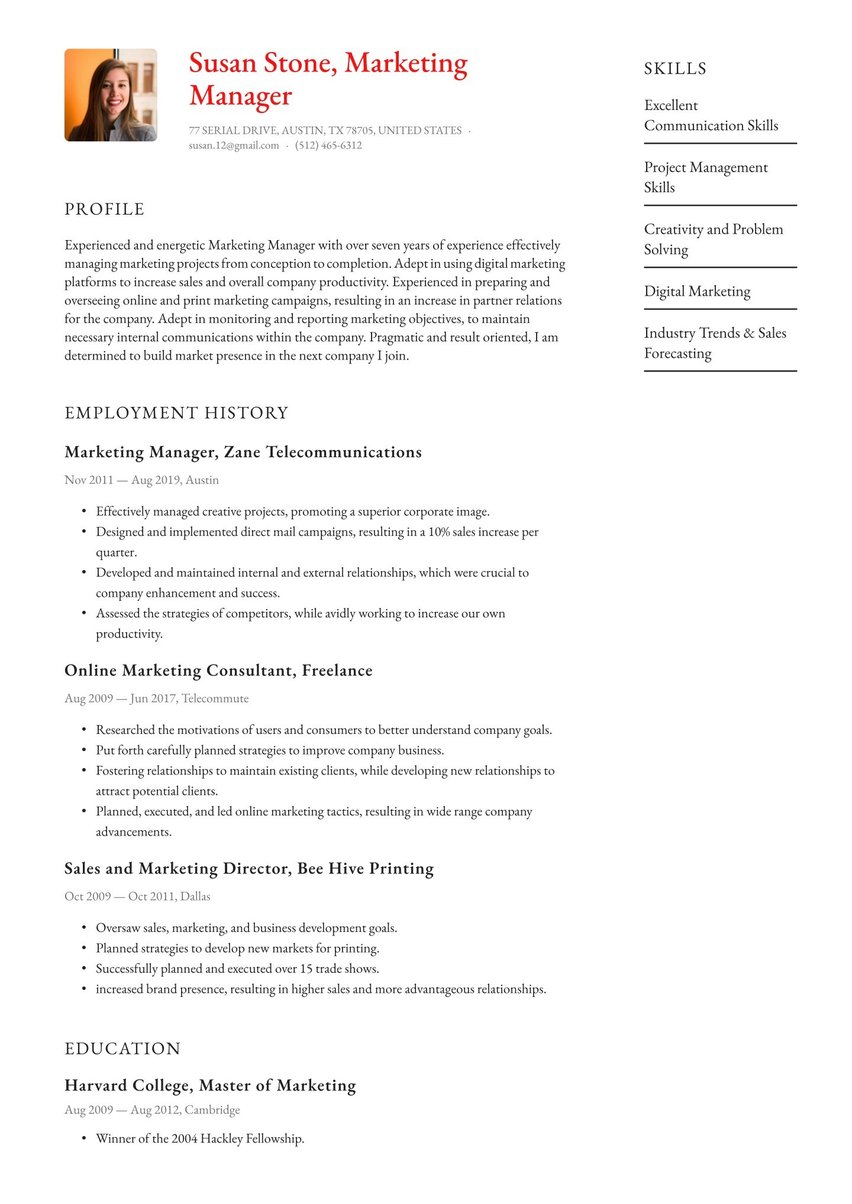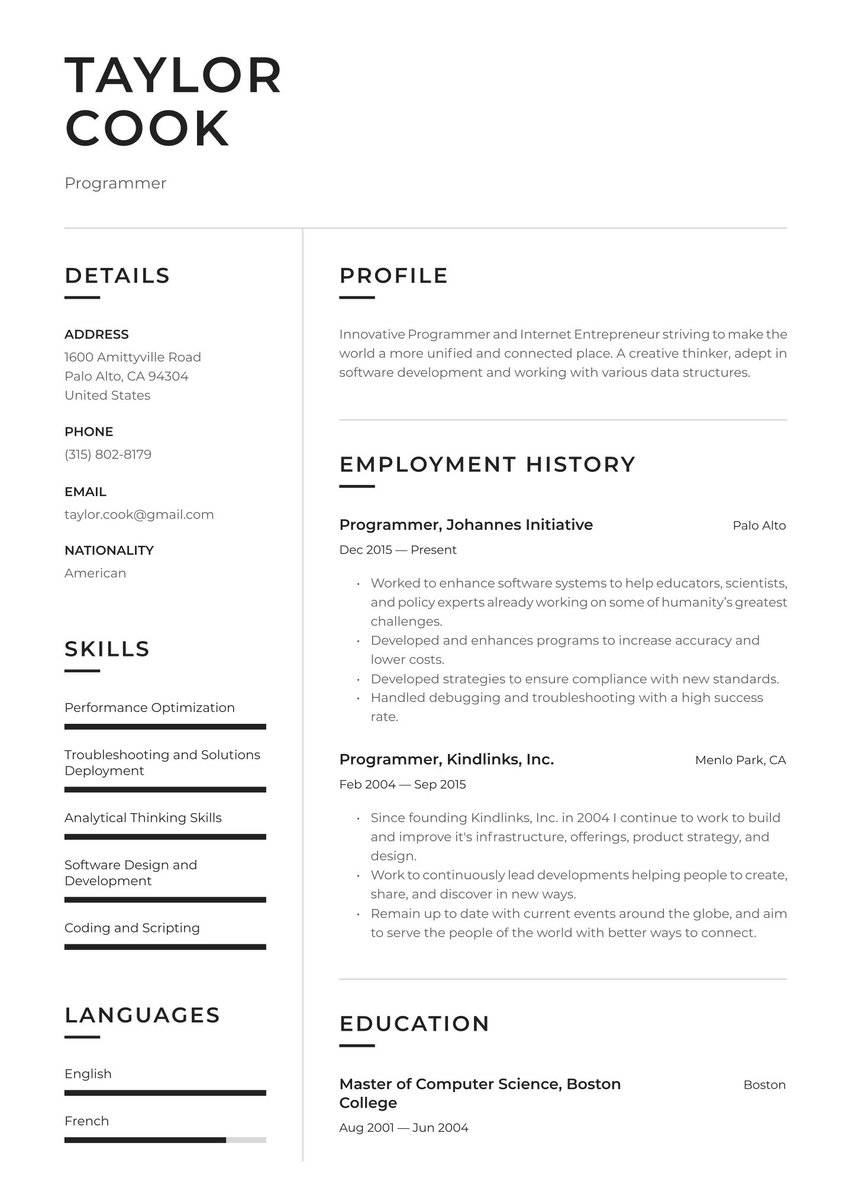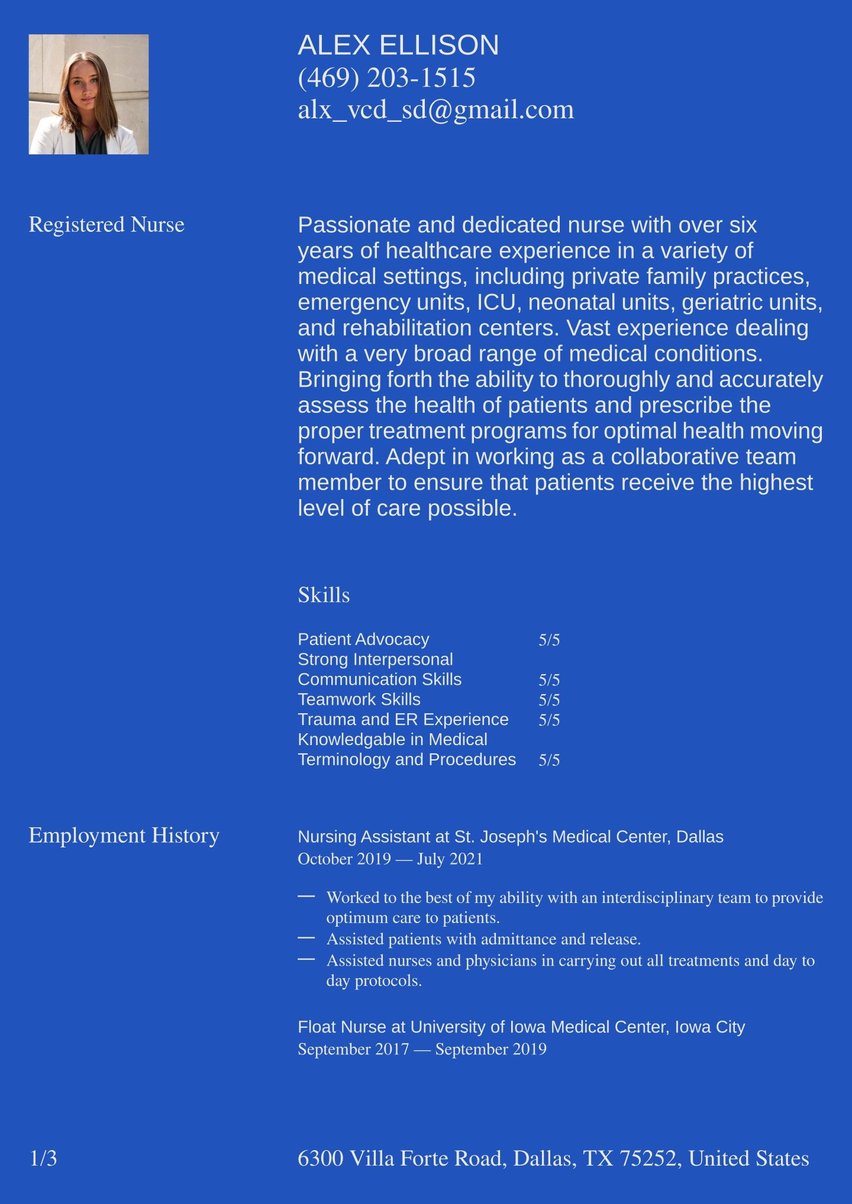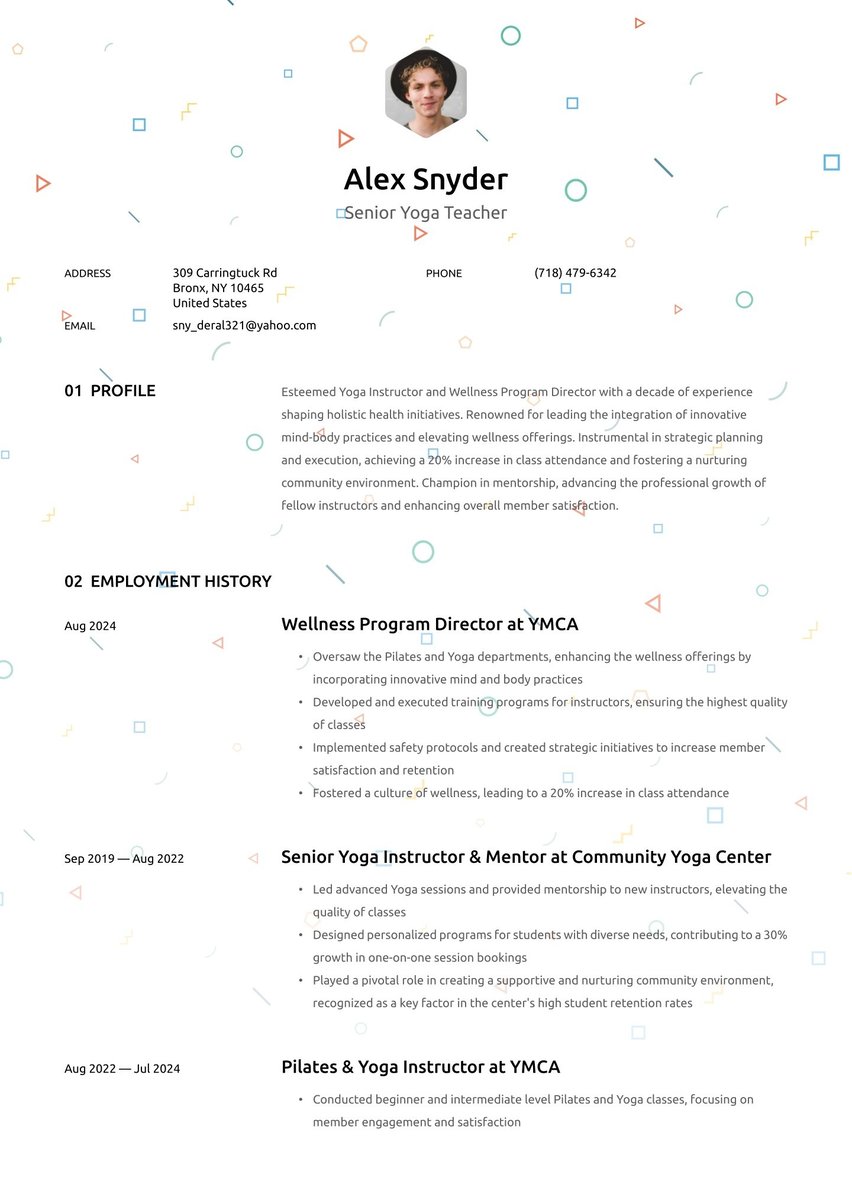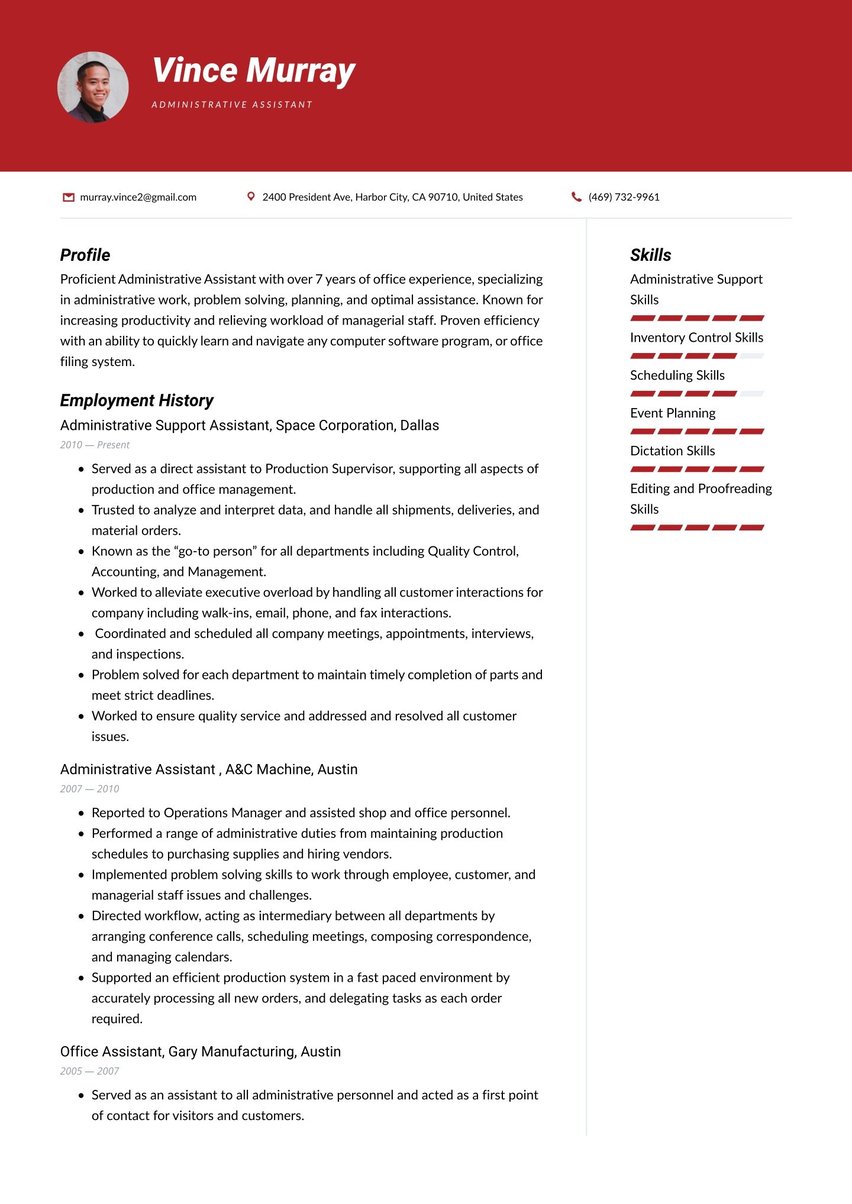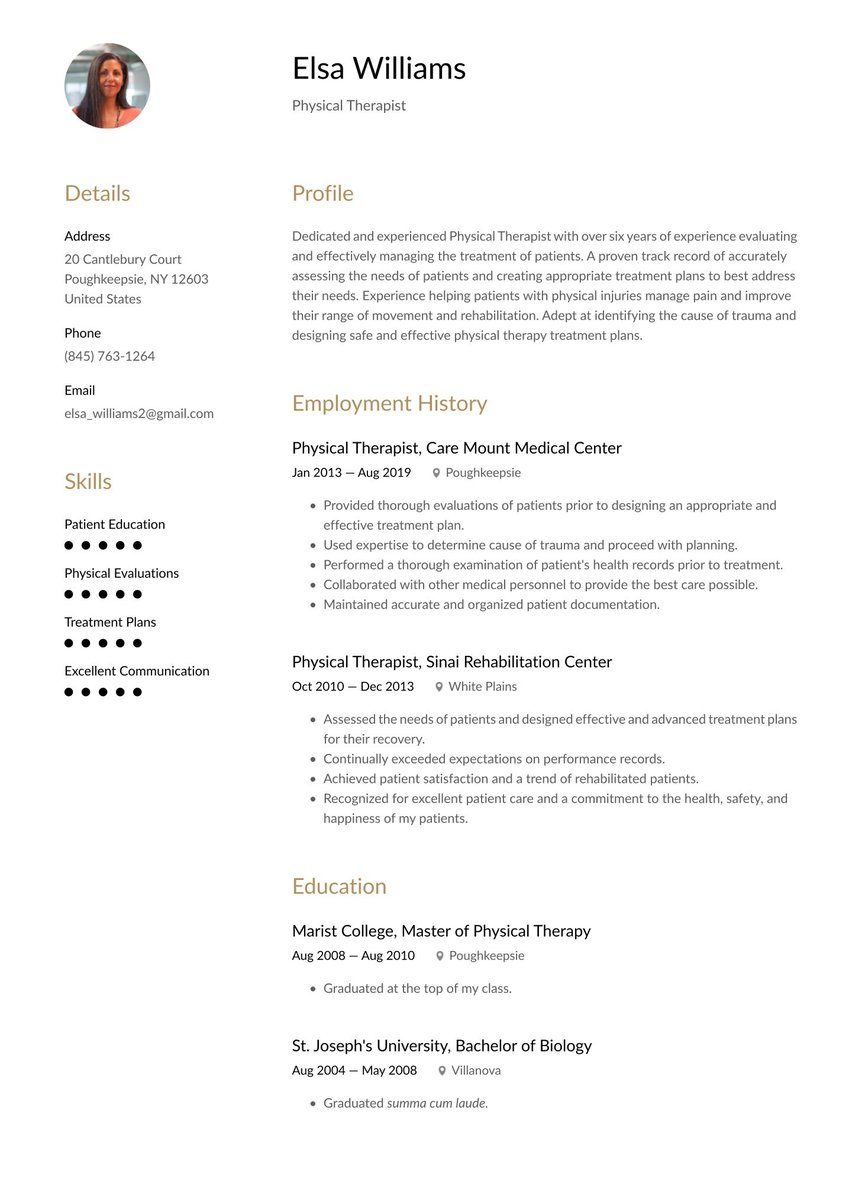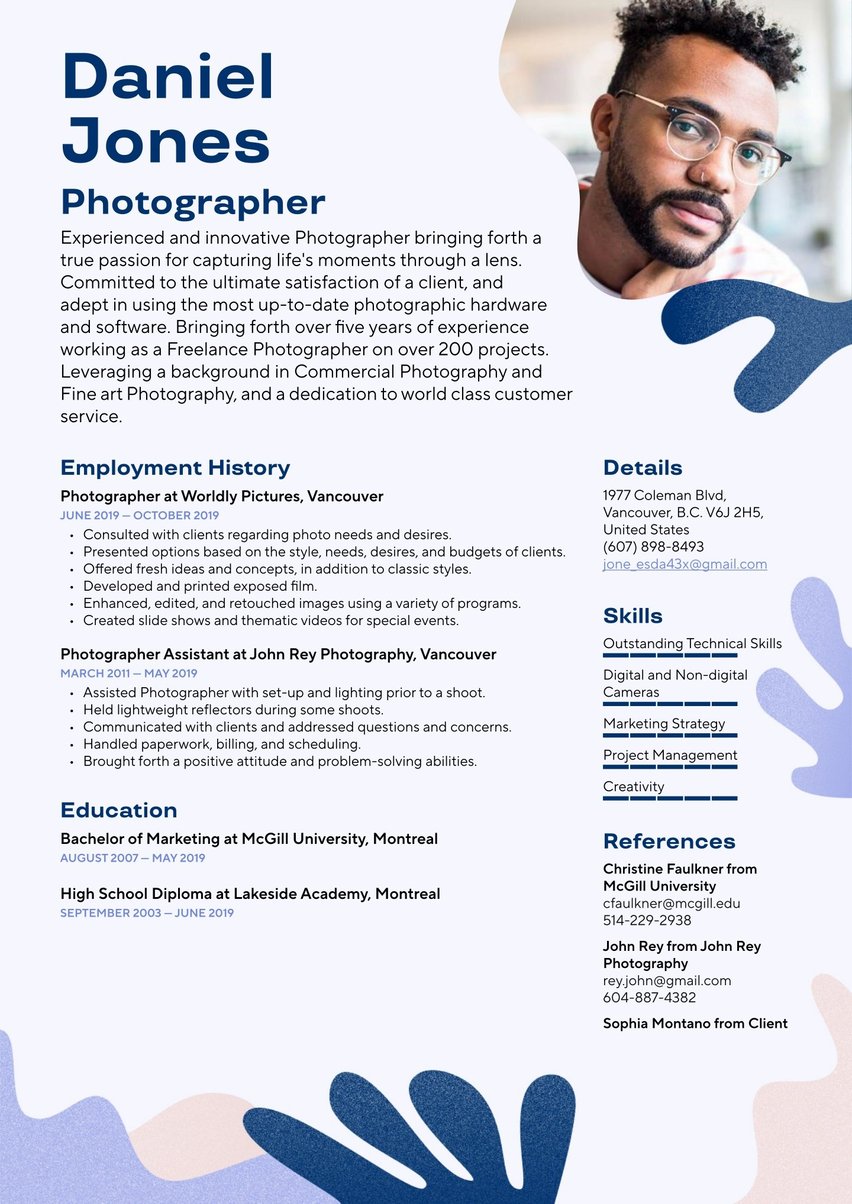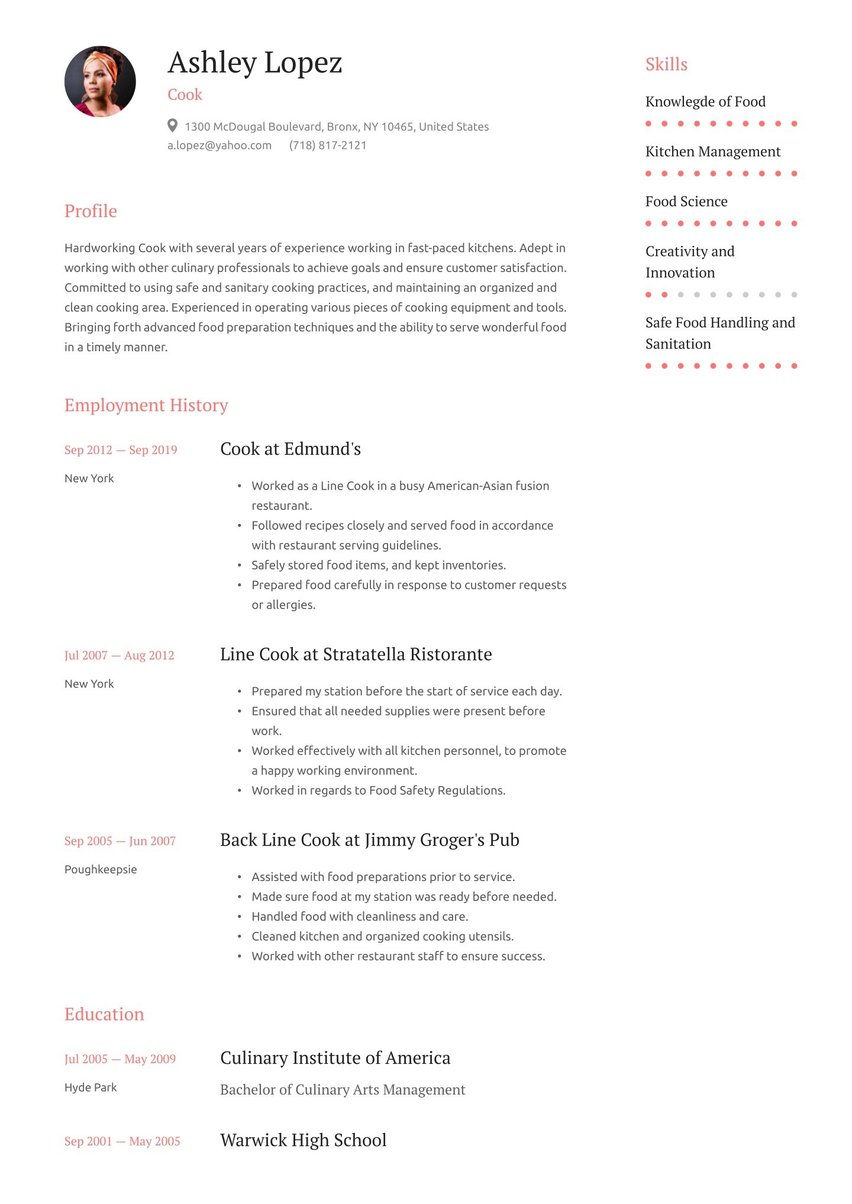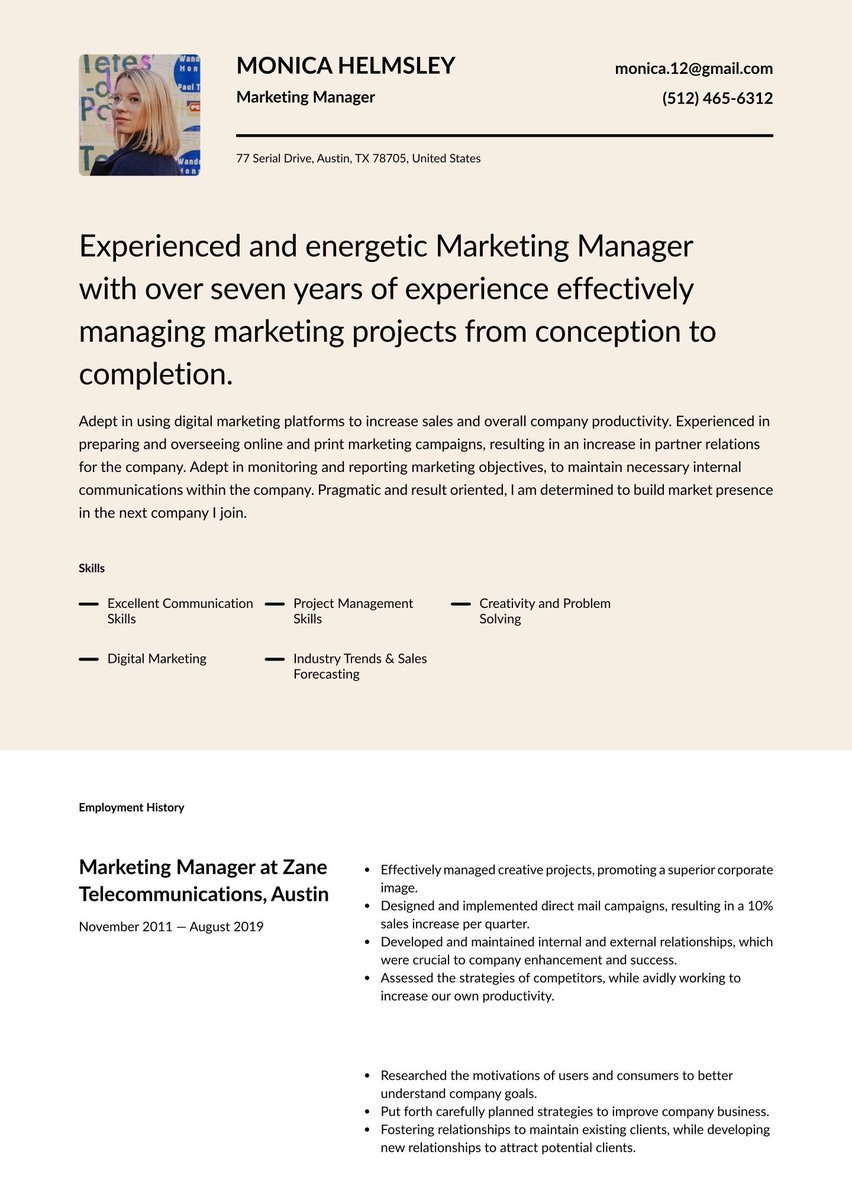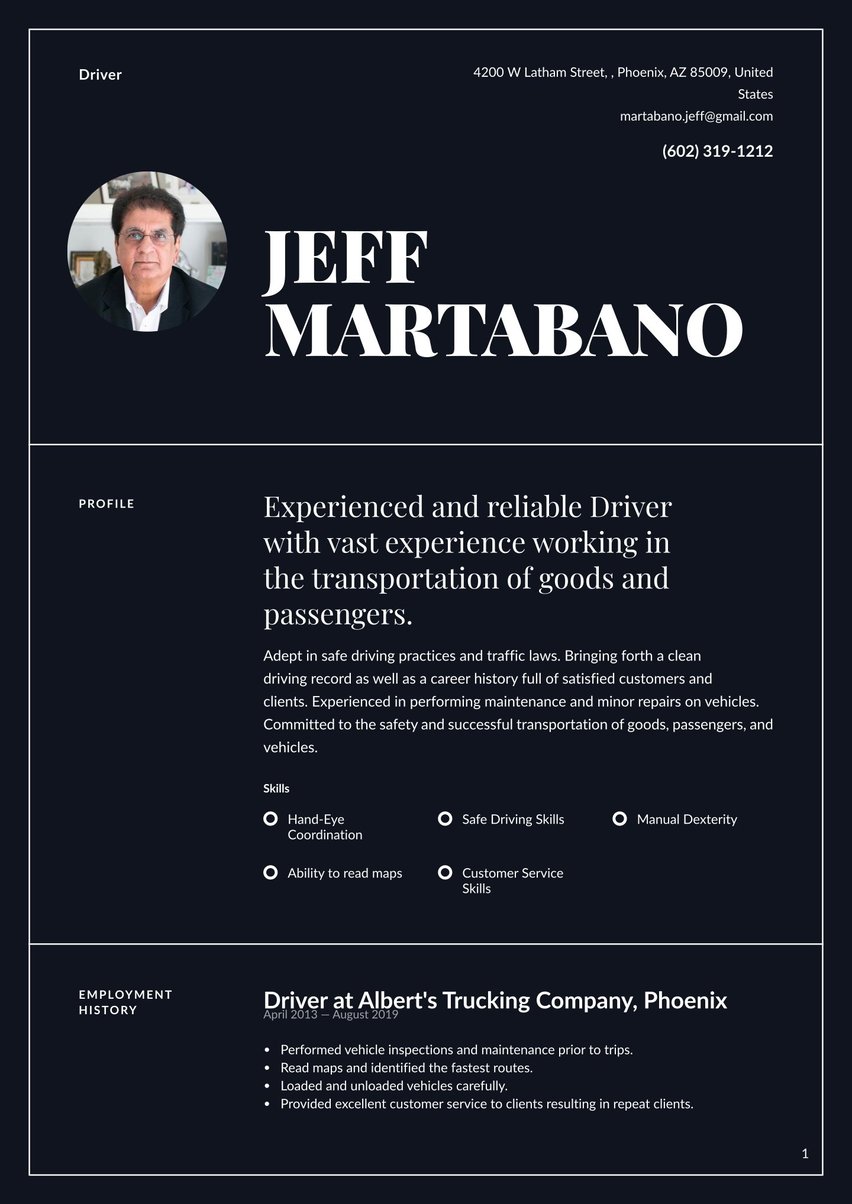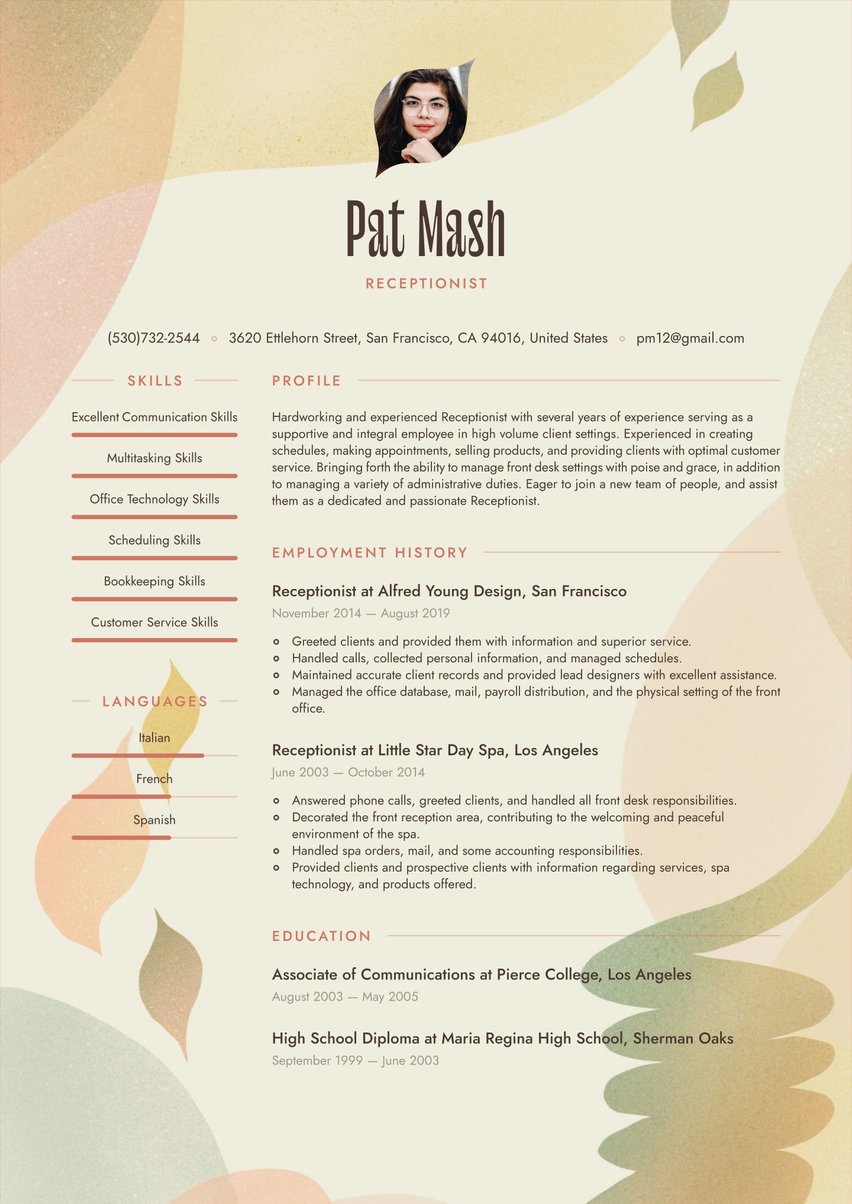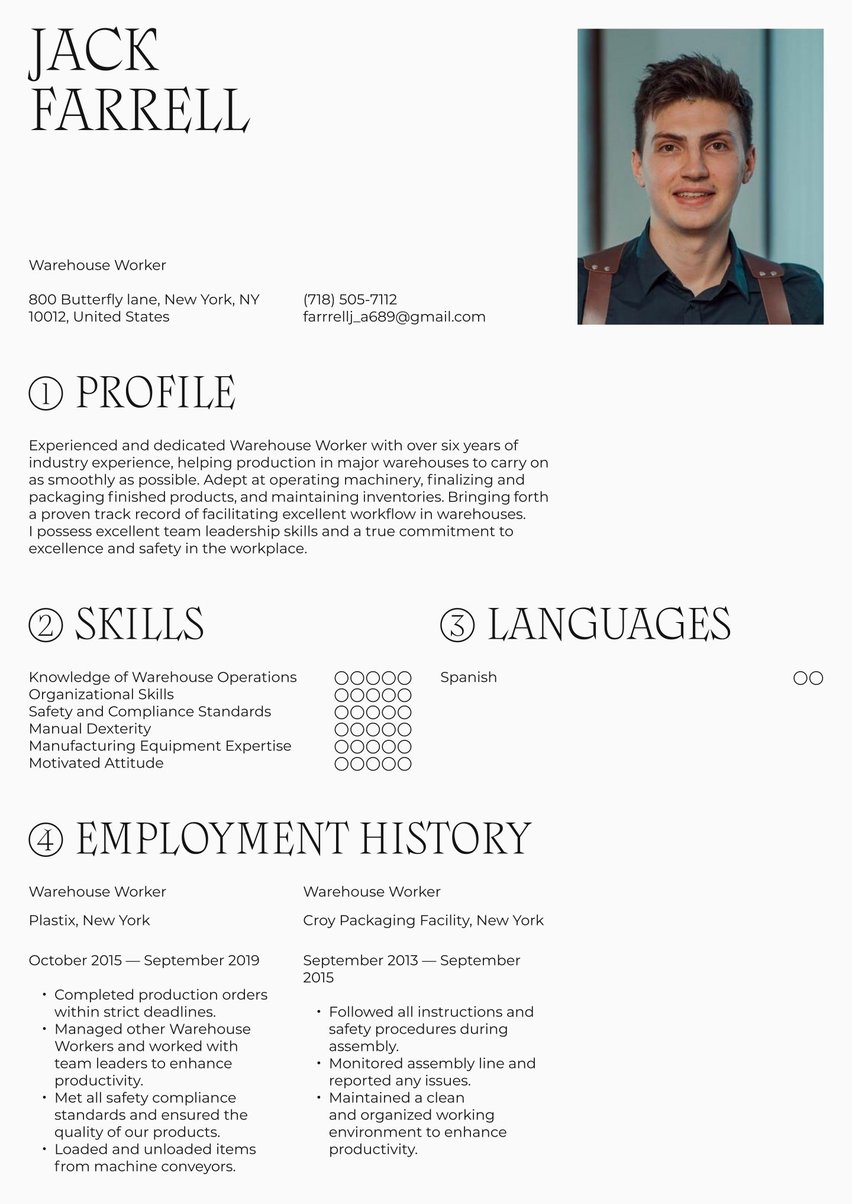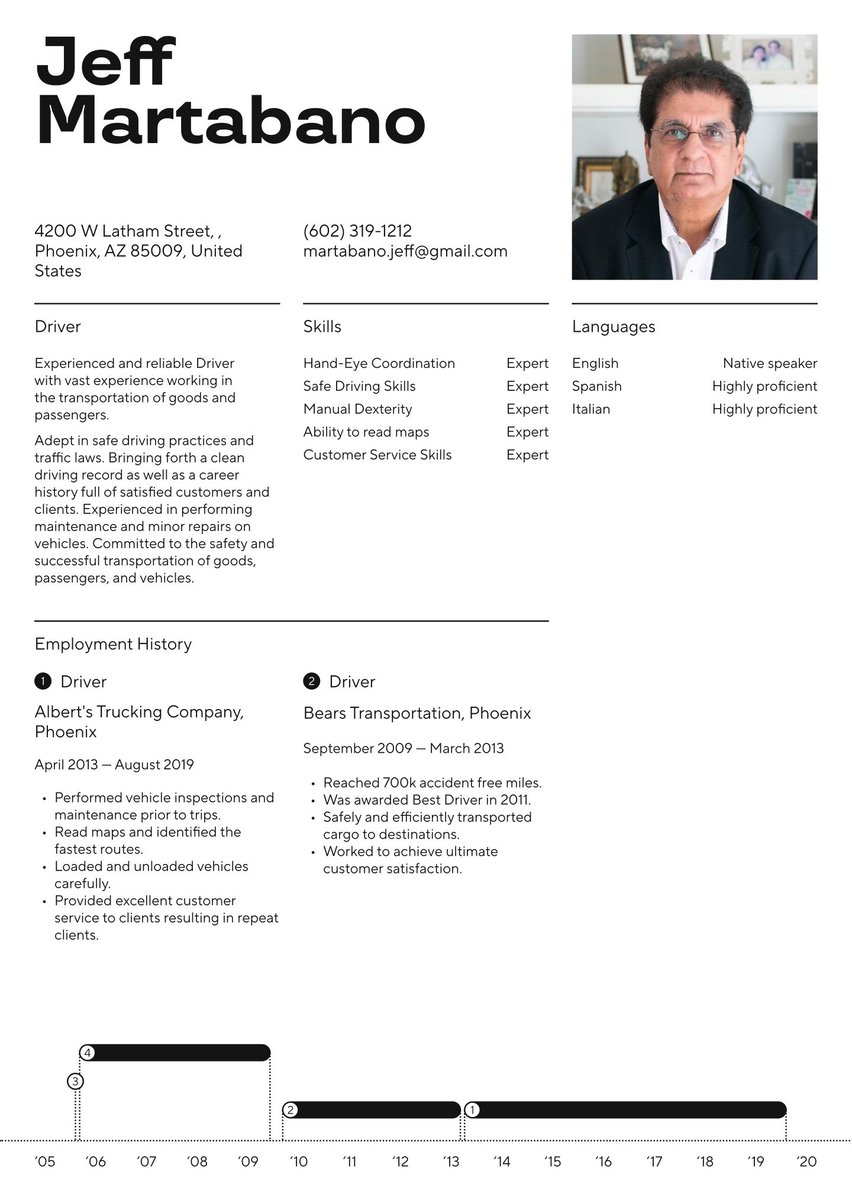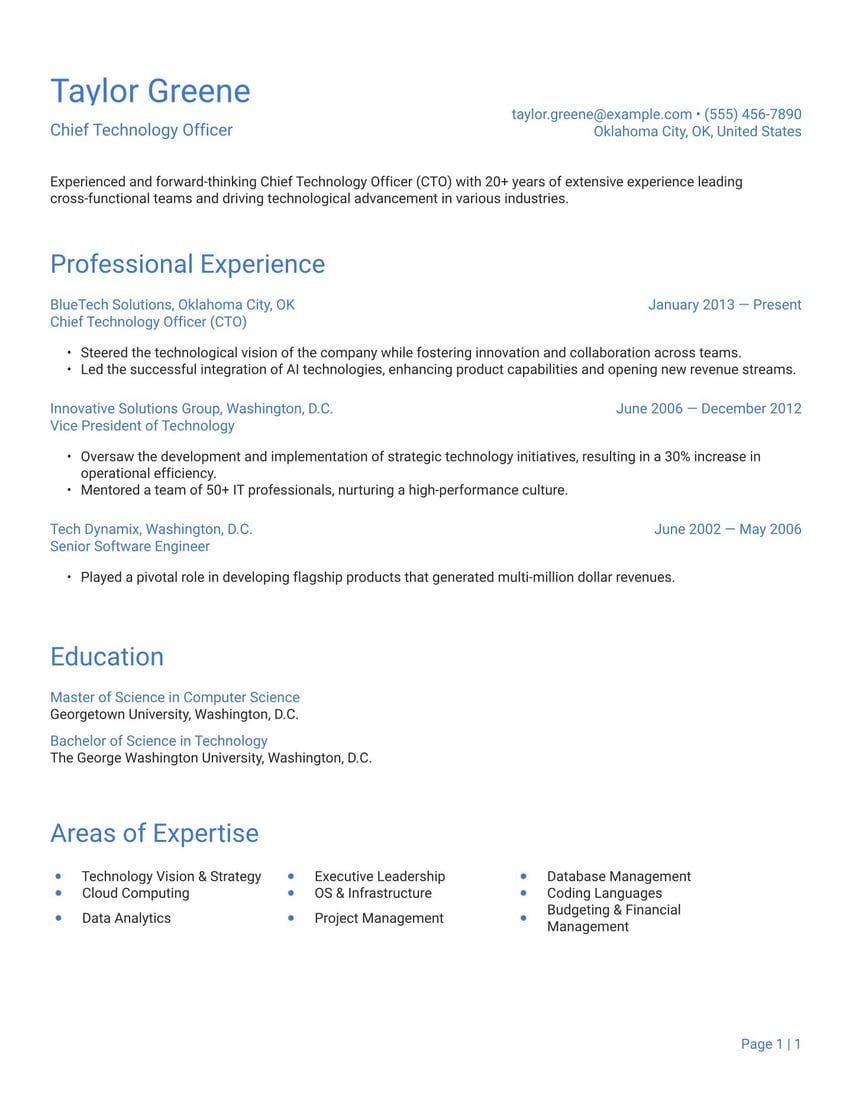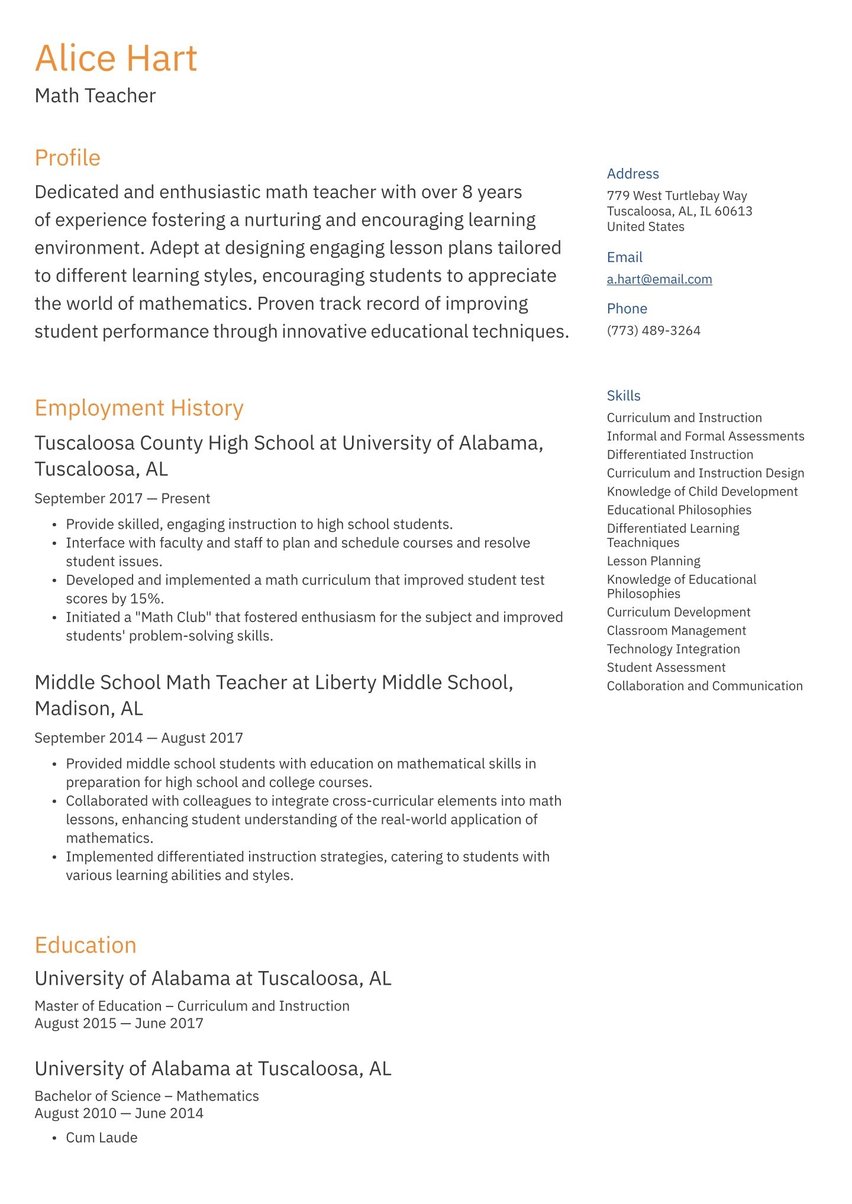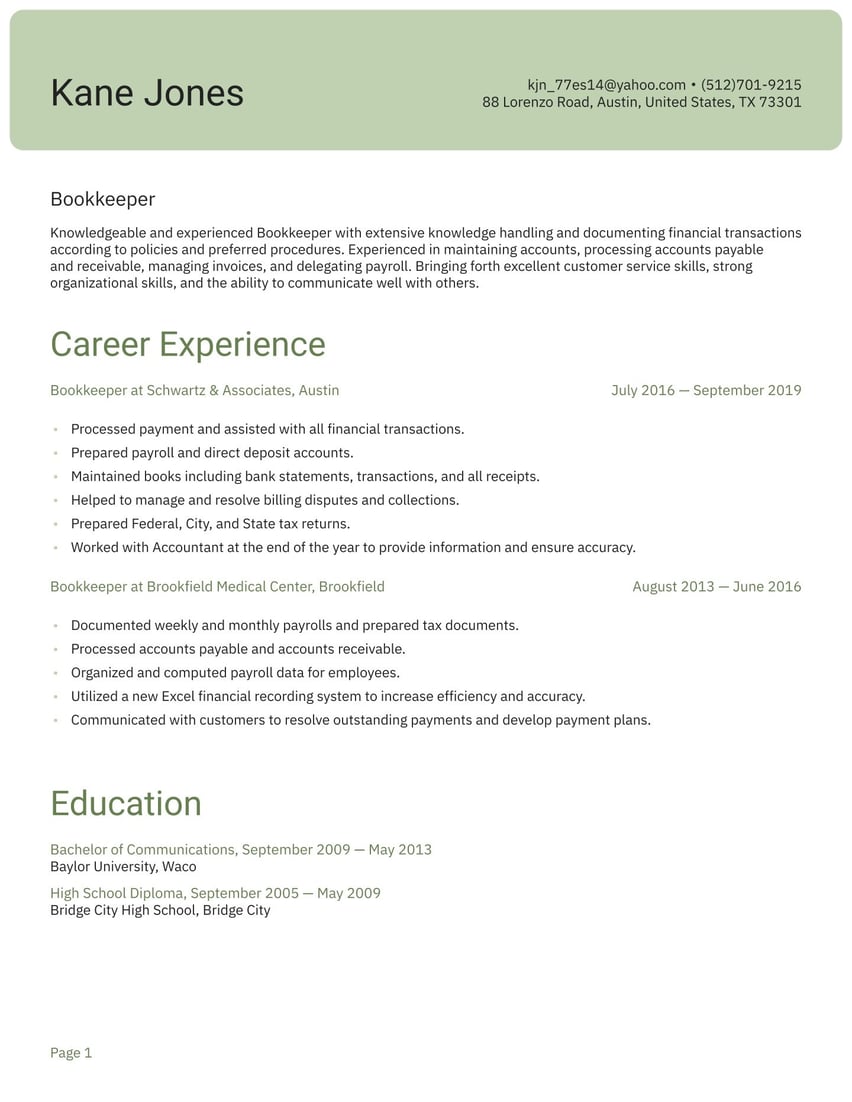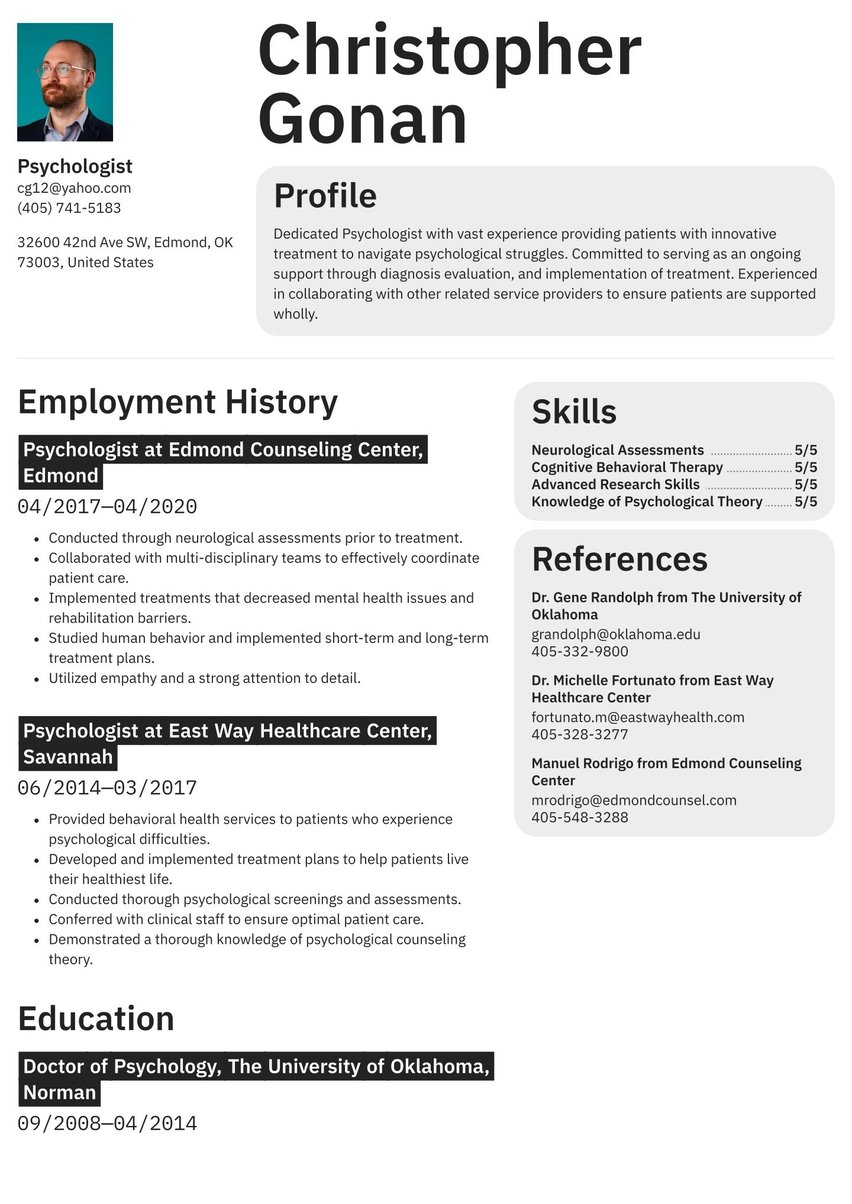Getting a federal job with the U.S. government can be a great way to start or continue your career. As with any formal job, the first step is to create an organized, powerful resume to land those high salaries and stable positions.
Federal resume examples by experience level
State organizations are often famous for their formal requirements and bureaucracy, and there are lots of hurdles to clear. According to the official government website USAjobs.gov: “Whether you’re a current federal employee or new to the Federal Government, your resume is the primary way for you to communicate your education, skills and experience.”
Resume guide for a federal resume
Regardless of the type of federal job you’re targeting, you need an outstanding resume—and Resume.io can help. Our resources include resume examples for over 500 professions, and our resume builder makes it easier than ever to create a winning resume, even with the additional requirements from the government.
This resume guide and corresponding federal resume example will cover the following:
- How to write a federal resume
- Choosing the right resume format for federal jobs
- How to add your contact information
- Using summaries to introduce yourself
- Adding your relevant experience
- Listing education and other credentials
- Picking the right resume design/layout
- What the federal job market looks like and what salary you can expect
How to write a federal resume
Regardless of occupation, this is the framework of elements that all resumes should incorporate:
- The resume header
- The resume summary (aka profile or personal statement)
- The employment history section
- The resume skills section
- The education section
However, due to the unique requirements of the federal government, your federal resume will likely include more detail in each of these sections than on a standard corporate resume.
Even with the federal government, a job application is a way of selling your unique value proposition to your future employer. You can do this in the following ways:
- While a federal resume requires you to list your job duties, you can also highlight accomplishments to give your resume more power. Anyone can list the tasks they were given, but what did you specifically accomplish in your past roles? What value did you bring?
- We recommend tailoring your resume to the specific employer, which you’ll be doing when you create a federal resume. Don’t just send your regular corporate resume; you need to follow the specific federal format.
- Ensure the design and layout of your resume are professional and easy to read. Federal resumes contain a lot of information, so make it easy to find what’s important!
- The federal government receives thousands of resumes, so be sure yours is optimized with the right keywords so it won’t be filtered out by ATS screening software.
Optimize for the ATS
ATS stands for applicant tracking system: a system used by companies, including the government, to collect and manage applications. Some advanced systems use algorithms to help scan and filter resumes based on how well they match the defined criteria.
Resumes that contain the desired keywords and phrases are green-lighted for further review. But when resumes fail the test, a human being may not even bother looking at them. And it turns out the official website for U.S. federal hiring actually addresses this issue under the helpful item “What should I include in my federal resume?” They suggest using the right terms to address each qualification from the job posting.
For example, if a job calls for:
- MS Project
- Military experience
- Bachelor’s degree
You want to make sure those terms are covered on your resume. Putting them into the summary, for instance, could look like this: “Experienced project management professional with military background, bachelor’s degree in business administration, and extensive experience with MS Project.”
Choosing the right resume format for the federal government
Federal jobs require a unique resume format. In fact, they have recommended templates and examples online. At its core, the federal resume is similar to a hybrid resume format. This means your resume opens by displaying your skills and competencies and then moves into your work history, presented in reverse chronological order. This work experience should include employer headings with the company name, job title, and dates worked.
When it comes to design, the best federal resumes use a simple layout that is clean, streamlined, and lacking distractions.
Include your contact information
An eye-pleasing resume header helps you stand out in the crowd of other federal government job contenders. Double your impact by making your resume and cover letter show off your personal brand with identical headers. Most important, the prominent placement of your name and contact information makes it that much easier for interested recruiters to get in touch with an interview invitation.
Because federal resumes are unique, you might need to incorporate extra information into your header compared to other types of resumes:
- Full name & title. List your first and last name and the title of the job you’re pursuing.
- Professional email address. Use a professional email format like [email protected].
- Phone number. Add the best phone number for them to call, ensuring you have a professional voicemail greeting set up.
- Location. While on most resumes you list only your city and state, federal resumes require a full address.
- LinkedIn. If your LinkedIn profile is active and relevant, feel free to include it.
- Citizenship status. List whether or not you are a US citizen and, if not, include your visa status.
- Special details. Add details like veteran experience, prior federal experience, or any government clearance you hold.
Don’t include:
- Date of birth: Even though federal resumes require more information, you can leave this off; it could potentially lead to age discrimination.
- Personal details: Marital status, passport number, etc. A social security number may be requested, but if it is not, you can leave it off.
Dave Salius
5004 Ingrid Lane, Washington D.C., 20016, United States
(202) 362-7188
Citizenship: US
Special Hiring Authority: None
Federal Experience: Yes, Federal
Clearance: None
Dave Salius
Make use of a summary or objective
You may not be running for office, but like any candidate for a government job, you need to make a clear, strong opening pitch on why you’re the right person to fill it. The resume summary—often referred to as an objective on the federal resume—is the first thing employers will see on your resume after your header.
A simple way to create a federal resume objective is to craft a basic statement including the agency and position you’re targeting. These few sentences are your opportunity to introduce yourself as the best person for the job.
In general, any resume summary should do more than just reiterate the resume content. Instead, use this space to give an overarching narrative of your experience and qualifications. For example, “Professional statistician with 10 years of experience in expert-level research and data mining, as well as writing and information design skills to present results to the public.”
Need inspiration for your summary? Check out our related resumes:
You can find adaptable federal resume examples summary below:
Dedicated and hardworking HR professional seeking HR Coordinator role within US Health and Human Services. Strong understanding of HR practices and employment laws. Adept at providing optimal support to executives and officials in need. Committed to integrity and constantly securing the privacy of identities and documents.
HR Generalist with five years of experience ensuring HR systems adequately support federal agencies in recruiting, hiring, and retaining an excellent and diverse workforce. Adept at providing optimal support to executives and officials in need. Committed to integrity and constantly securing the privacy of identities and documents. Proven track record of facilitating excellent workflow in HR departments.
Experienced and dedicated HR Manager with over ten years of experience ensuring HR systems adequately support federal agencies in recruiting, hiring, and retaining an excellent and diverse workforce. Adept at providing optimal support to executives and officials in need. Committed to integrity and constantly securing the privacy of identities and documents. Proven track record of facilitating excellent workflow in HR departments.
Outline your work experience
Your resume's employment history section should list current and previous jobs in reverse chronological order. Like most resumes, you should include the company, title, and dates of employment. However, unlike standard resumes, federal resumes also require you to add the number of hours you worked per week, your level or federal grade, and sometimes your salary.
For example, directly from USAJobs:
Program Analyst GS-343-11
January 2009—Present
40 Hours/Week
$63,000/Year
- Experience/Accomplishment
- Experience/Accomplishment
Include at least the last 10 years of experience. Don’t just list job duties (although those are important); make sure to list your specific achievements at each job. Avoid saying “Was responsible for” and use strong action verbs to describe what you actually did. Be as specific as possible, ideally citing any numerical evidence (facts and figures) for your accomplishments (alternatively, share project or team-based achievements).
As an example, vague, duty-based statements might look like this:
- “Assisted in attracting and retaining workers.”
- “Handled HR procedures.”
- “Helped to foster a diverse and inclusive work environment.”
- “Provided optimal administrative support and conducted yearly reviews.”
When you rephrase them to focus more on your specific impact and results, your resume becomes much more compelling:
- “Assisted in attracting and retaining a high performing and diverse workforce, contributing to a 30% increase in retention.”
- “Handled all HR procedures with confidentiality and ethics, leveraging expertise from PHR certification.”
- “Fostered a diverse and inclusive work environment, including execution of three programs that grew employee diversity by 10%”
- “Managed administrative oversight for location, including conducting annual reviews for 15 employees of various levels.”
Take a look at the federal employment history resume sample below:
Federal HR Manager at Federal Government, Washington D.C.
June 2006 - September 2018
- Assisted in attracting and retaining a high performing and diverse workforce.
- Handled all HR procedures with confidentiality and ethics.
- Helped to foster a diverse and inclusive work environment.
- Provided optimal administrative support and conducted yearly reviews.
Include the relevant key skills that make you a great federal employee
Your skills section should include a mix of hard and soft skills to paint the full picture of who you are as an employee.
Hard skills include advanced expertise in your field or technical skills like knowledge of specific systems. On the other hand, soft skills like cross-functional collaboration, communication skills, or problem solving talents are important as well.
Our resume builder offers a myriad of pre-written skills to choose from, along with proficiency ranges you can set. You can also include your own skills.
Here’s what the skills box looks like in our federal resume template.
- Computer Systems
- Interpersonal Skills
- Organizational Skills
- Integrity
- Positive Work Ethic
However, while a federal resume’s skills section is important, it’s not the only place to show your skill set. Instead, ensure your skills show up throughout your resume—especially in the summary and work history sections.
For example, you might highlight things like:
- Specific role expertise by describing the knowledge you gained and leveraged in past roles, accomplishments specific to the role at hand, and impacts you’ve made in relevant positions
- Technical skills including any specific systems or software you’ve used. If you’re in a technical role, be sure to list coding languages, databases, or other technologies.
- Interpersonal skills such as leadership experience, cross-functional collaboration, or strong communication skills.
Look to the job description as a guide for what key skills to include.
Detail your education & relevant certifications
The federal government hires workers from a broad range of educational backgrounds, from scholars with doctoral degrees to people who never finished high school. Study the requirements of government jobs in your field and make sure you have the required education before you apply.
In your education section, list your educational credentials in reverse chronological order along with any special certifications in your field. For example:
- Training and certifications. Any courses, workshops, or even webinars that enhance your skills in the job you’re targeting.
- Internships. Include any relevant internships or training programs.
- Professional development. Memberships in related business or trade associations show your interest in your field and desire to continue growing your knowledge.
Be sure to include the name of the institution, your degree or credential, dates attended, and your GPA (if relevant).
Bachelor of Communications, Georgetown University, Washington D.C.
August 2002 - May 2006
High School Diploma, St. Rose's High School, Arlington
September 1998 - May 2002
Pick the right resume layout and design for a federal resume
You have likely heard you should keep your resume to one page, but with a federal resume, you should expect to write a longer resume. Don’t get too caught up in the number of pages since a multi-page resume is standard.
Do, however, keep your resume layout and design simple, straightforward, and elegant. Avoid gimmicks, splashy colors, or excessive decoration. Strive for a professional, eye-pleasing look, use a balance of white space and text, and choose a simple font.
It may feel daunting to write a federal resume, but there are ways to make it easier. Check out our field-tested resume templates and let us handle the heavy lifting.
Federal text-only resume example
Profile
Experienced and dedicated Federal Government HR Manager with over ten years of experience, ensure HR systems support agencies in recruiting, hiring and retaining an excellent and diverse workforce. Adept at providing optimal support to executives and officials in need. Committed to integrity and constantly securing the privacy of identities and documents. Bringing forth a proven track record of facilitating excellent workflow in HR departments.
Employment history
Federal HR Manager at Federal Government, Washington D.C.
June 2006 - September 2018
- Assisted in attracting and retaining a high performing and diverse workforce.
- Handled all HR procedures with confidentiality and ethics.
- Helped to foster a diverse and inclusive work environment.
- Provided optimal administrative support and conducted yearly reviews.
Skills
- Computer Systems
- Interpersonal Skills
- Organizational Skills
- Integrity
- Positive Work Ethic
Education
Bachelor of Communications, Georgetown University, Washington D.C.
August 2002 - May 2006
High School Diploma, St. Rose's High School, Arlington
September 1998 - May 2002
Federal job market and outlook
Federal jobs remain highly coveted, and with good reason, as they often are some of the most recession-proof opportunities out there (relatively speaking, of course). The federal government is the largest employer in the United States: in 2023, there were 2.95 million employees working for the federal government.
To a job seeker, these numbers add up to big opportunities. Not only are there lots of jobs, but federal workers generally enjoy exceptional pay and benefits, good hours, and extraordinary job security. Plus, over the long haul, government payrolls are relatively immune to political changes at the top.
- The fastest-growing jobs in the federal government are projected to be statisticians, medical workers, computer and data experts, and analysts.
- However, there is an anticipated decline in overall federal employment, estimated at 2%.
- The locations with the highest average federal salaries are Washington, DC, Maryland, Virginia, and New Jersey. The lowest-paid are Utah, Wyoming, and South Dakota.
What type of salary you can expect in federal government
Due to the wide variety of federal jobs, the changing number of jobs, and the varying amounts of pay (all of which are moving targets), estimates differ on average salaries for federal employees. The short answer, however, is that the pay is good.
According to USAFacts.org, the average annual pay for civilian federal workers exceeds $80,000 in all US states. The highest paid professions include medical officers ($269,735 per year), securities compliance examiners ($210,689), dental officers ($202,333), administrative law judges ($192,546), and ship pilots ($183,500).
Key takeaways for building a federal resume
There are millions of federal jobs with excellent pay, benefits and job security, and the job outlook for this sector is fairly secure. For anyone seeking federal employment, building an outstanding resume is a crucial first step. Make sure each resume you send out is custom-built to specifically address the requirements of the job you’re seeking.
Spend some time with our online resume builder at Resume.io, choose one of our professional templates, and start crafting a bulletproof resume today. The jobs are there—all they’re waiting for is you.


.jpg)

.jpg)
